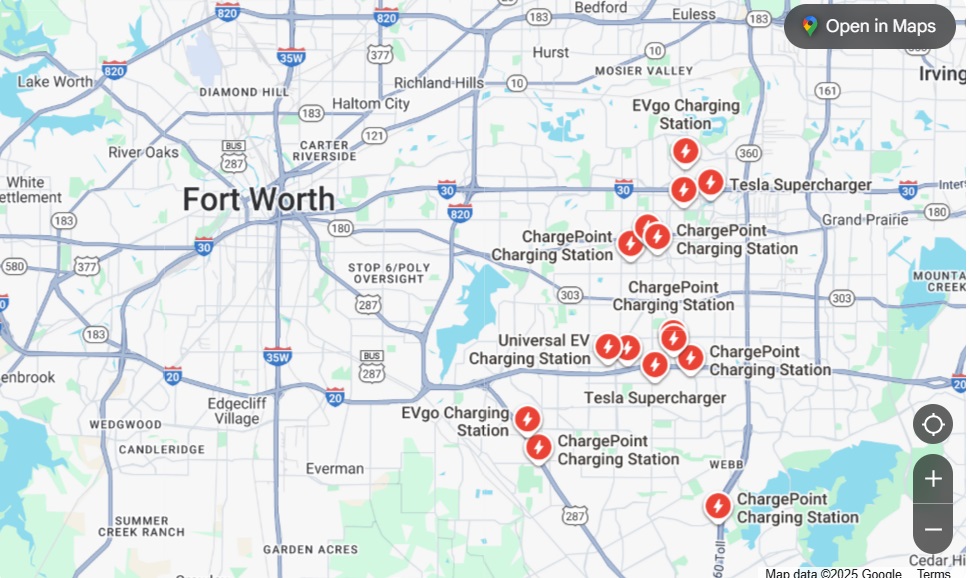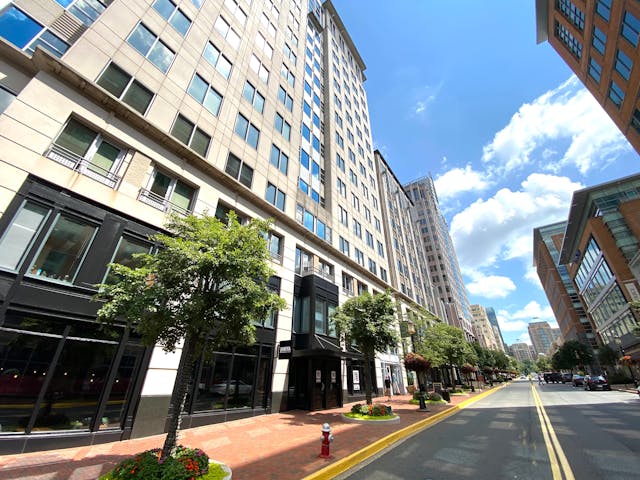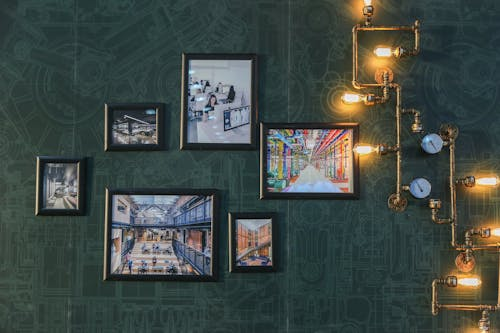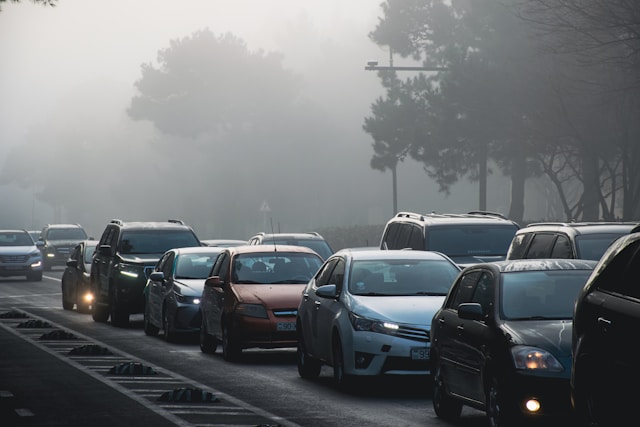Arlington, Virginia might surprise eco-conscious travelers. While best known for its national landmarks and business hubs, the city has steadily evolved into one of the D.C. area’s most forward-thinking green destinations. With more than 90 LEED-certified buildings, miles of bike trails, over 120 public EV charging stations, and a countywide pledge to achieve carbon neutrality by 2050, Arlington blends modern infrastructure with a quiet, sustainable sensibility.
This guide breaks down where to stay, eat, explore, and get around — plus smart habits to make your trip lighter on the planet.
Sustainable Stays in Arlington
Where you sleep can be one of the most carbon-intensive parts of travel, but Arlington makes it easier to rest responsibly.
- Green Hotels
The Hyatt Centric Arlington and Westin Crystal City participate in national “Green Seal” and ENERGY STAR programs, adopting water-saving fixtures, low-flow toilets, and advanced HVAC systems that cut energy use by up to 20% compared with conventional hotels. The Residence Inn Rosslyn goes further, holding LEED Silver certification, meaning its design and operations meet strict U.S. Green Building Council standards. Several hotels also partner with Clean the World, recycling leftover toiletries into hygiene kits for underserved communities. - Apartment Living for Longer Stays
For travelers working remotely or staying more than a few nights, a furnished apartments in Arlington is often the greener choice. Platforms like Blueground offer fully equipped units in neighborhoods such as Rosslyn and Pentagon City. Having your own kitchen reduces the need for daily takeout packaging, while energy-efficient appliances and fewer single-use amenities minimize waste. Staying in local neighborhoods also makes it easier to walk to cafés, co-working spaces, and grocery stores — cutting car trips and encouraging deeper community connections.
Eco-Friendly Dining in Arlington
Eating well in Arlington doesn’t mean compromising your environmental values. The city’s dining scene increasingly embraces local sourcing, plant-forward menus, and zero-waste kitchens. From casual cafés to upscale dining, here are several places where sustainability is part of the experience.
Farm-to-Table and Low-Waste
Arlington has a growing number of restaurants committed to reducing waste and supporting local farms.
- Green Pig Bistro (Clarendon) – A pioneer in nose-to-tail cooking, using every part of the animal alongside seasonal produce from Virginia farms.
- Clare & Don’s Beach Shack (Clarendon) – Known for its sustainable seafood practices and locally sourced ingredients.
- Ambar Clarendon – A Balkan-inspired restaurant with a strong emphasis on seasonal menus and minimizing food waste through small-plate dining.
- Liberty Tavern (Clarendon) – Highlights local meats, produce, and bread made in-house with regionally milled flour.
By choosing farm-to-table options, travelers support small growers and enjoy fresher, more nutrient-dense meals.
Plant-Based Staples
For travelers seeking vegetarian or vegan-friendly meals, Arlington offers an impressive lineup of plant-forward dining.
- The Loving Hut (Clarendon) – An entirely vegan restaurant serving Asian-inspired dishes free of animal products.
- South Block (Multiple Locations) – Famous for its smoothie bowls and cold-pressed juices, packaged in compostable containers.
- Busboys and Poets (Shirlington) – A socially conscious café with an extensive vegan menu, fair-trade coffee, and support for local food justice causes.
- Sweetgreen (Ballston & Clarendon) – A national chain with deep Arlington roots, sourcing seasonal produce from mid-Atlantic farms.
- Chop’t (Pentagon Row) – Specializes in salads and warm bowls, with a focus on sourcing regional greens and offering fully compostable packaging.
These restaurants make it easy to stay plant-based without sacrificing flavor or convenience.
Certified Green Restaurants
Several Arlington dining spots participate in official programs like the Green Restaurant Association and Arlington County’s Green Business Program, ensuring measurable sustainability practices.
- Northside Social (Clarendon & Falls Church) – A café and wine bar certified for its waste reduction, water conservation, and energy-efficient operations.
- Bayou Bakery (Courthouse) – Recognized for using compostable packaging, LED lighting, and community partnerships supporting local growers.
- Cheesetique (Ballston) – A cheese-and-wine bar that integrates energy-efficient equipment and responsible waste practices.
- The Celtic House (Columbia Pike) – An Irish pub participating in Arlington’s green restaurant initiative, cutting down water and energy use in its kitchen.
- Whole Foods Market Café (Clarendon) – While technically a grocery store café, its Arlington location is part of Whole Foods’ company-wide zero-waste program.
Choosing certified restaurants not only guarantees a delicious meal but also signals real environmental commitments that align with Arlington’s larger sustainability goals.

Green Attractions & Low-Impact ActivitiesArlington rewards travelers who like to explore without a car. Many of its most rewarding activities are outdoors, community-driven, and easy to reach by Metro, bike, or on foot.
- Theodore Roosevelt Island
Accessible only by footbridge, this wooded island is a car-free sanctuary of wetlands, migratory birds, and quiet trails. Interpretive signs highlight Roosevelt’s early conservation legacy. - Farmers Markets
On Saturdays, the Arlington Farmers Market in Courthouse features regional produce, artisan cheeses, and small-batch baked goods. Many vendors accept reusable bags and promote low-waste shopping. - Long Bridge Park
A reclaimed brownfield turned eco-recreation space, Long Bridge Park features stormwater-filtration wetlands, energy-efficient sports facilities, and sweeping views of the Potomac. - Public Art with a Message
The Arlington Arts District showcases murals and installations with environmental themes — from upcycled sculptures to climate-inspired wall art. - Active Adventures
Rent a bike through Capital Bikeshare (over 700 stations region-wide) or a kayak from Boating in DC to paddle the Potomac. Both offer emissions-free ways to stay active and experience Arlington’s natural edges.

Getting Around Sustainably
A car-free trip is not only possible in Arlington, it’s often easier.
- Metro & Bus
Arlington is served by four Metro lines — Blue, Yellow, Orange, and Silver — connecting directly to Washington, D.C. Most neighborhoods, from Crystal City to Ballston, are within walking distance of stations. Metrorail fares range $2–$6 depending on distance and time. Metrobus fills in gaps for a flat $2 fare. - Bike & Scooter Share
Capital Bikeshare makes two-wheel travel convenient. Unlock a bike for $1 plus $0.05 per minute, or purchase a day pass. Electric scooters are also available across Arlington for quick, emission-free trips. - EV Infrastructure
Arlington has installed 120+ public charging stations in garages, retail centers, and parks, making it one of the most EV-friendly counties in the region. - Walking First
Many neighborhoods, especially Rosslyn and Clarendon, are highly walkable, with tree-lined sidewalks and dense clusters of restaurants, markets, and co-working hubs.
Smart Habits for Greener Travel
Even in a green-minded city, traveler choices matter. Some simple strategies include:
- Pack light to save fuel and avoid extra luggage fees.
- Bring reusables: water bottle, tote, and cutlery.
- Eat local and seasonal, cutting food miles while enjoying fresher meals.
- Offset flights with reputable providers like Atmosfair or Cool Effect.
- Stay longer in one place to reduce overall travel emissions.
Knowing Arlington’s recycling rules helps too: avoid bagging recyclables, rinse containers, and never toss plastic bags into bins (local groceries offer drop-off points instead).
Best Time to Visit Sustainably
Spring (April–June) and fall (September–November) are Arlington’s sweet spots. Mild weather makes walking and biking pleasant, farmers markets are in full swing, and visitor numbers are lower than peak summer. Winter brings fewer tourists — and lower hotel energy demand — but also chillier outdoor conditions.
Sample 2-Day Green Itinerary
Day 1
- Morning: Start with coffee at a Green Restaurant-certified café.
- Late morning: Explore Theodore Roosevelt Island on foot.
- Afternoon: Shop at the Arlington Farmers Market.
- Evening: Dinner at Green Pig Bistro, then Metro to see local eco-themed public art.
Day 2
- Morning: Rent a bike from Capital Bikeshare and ride the Mount Vernon Trail.
- Afternoon: Picnic at Long Bridge Park (pack local produce).
- Evening: Enjoy a plant-based meal at The Loving Hut, then walk through Clarendon.
Conclusion
For travelers who want their trip to feel good in every sense, Arlington strikes a compelling balance. With tree-lined neighborhoods, reliable transit, farm-to-table dining, and over 90 LEED-certified buildings, the city proves you don’t have to trade convenience for conscience.
It’s not a place shouting about sustainability. Instead, Arlington’s green credentials reveal themselves quietly — on a trail through wetlands, at a farmers market stall, in the sunlight pouring through an energy-efficient hotel window.
Travel light. Stay longer. Walk more. And let Arlington show how a modern U.S. city can welcome travelers while reducing their footprint.




